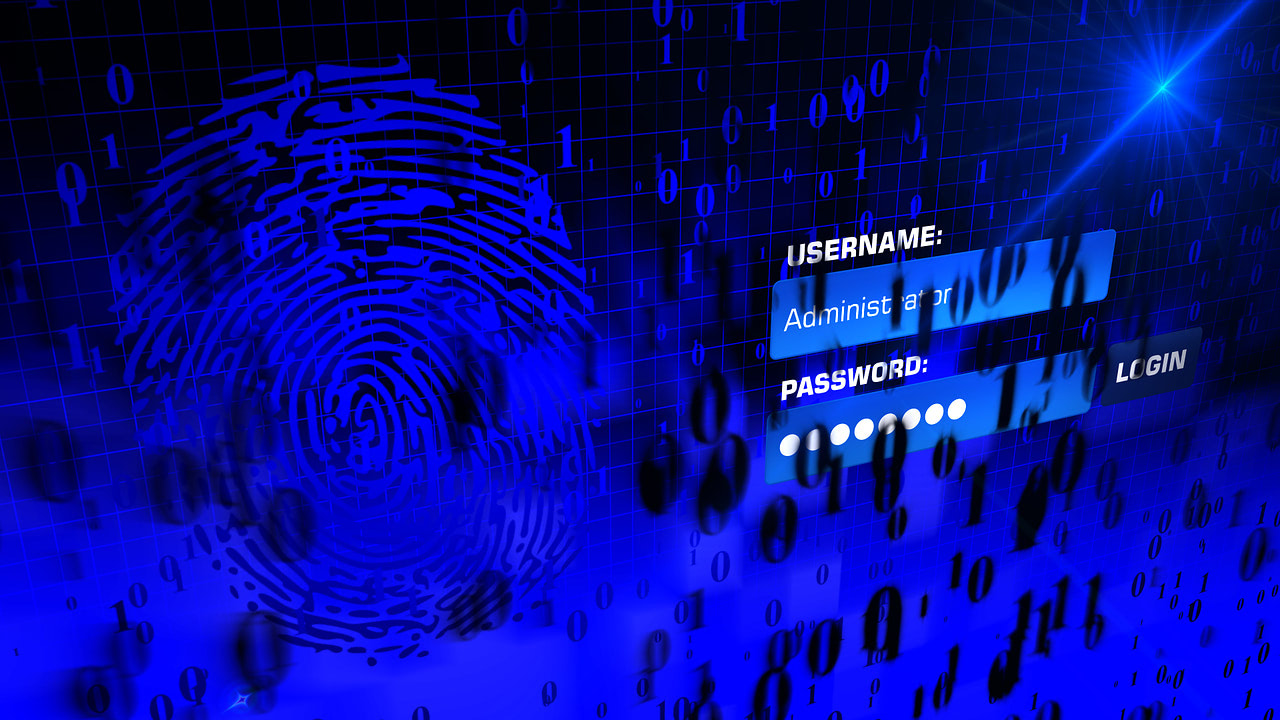Physical Address
304 North Cardinal St.
Dorchester Center, MA 02124
Physical Address
304 North Cardinal St.
Dorchester Center, MA 02124

Digital privacy has always been vital. It’s the reason why internet users have passwords and identification security to prevent access to their information. However, as data becomes more digitized, digital privacy remains an area of great concern. The increase in online presence and internet activities threatens this privacy as information is at risk of access by unauthorized users.
The need for internet privacy is more important than ever. Businesses and individuals are at risk of exposing private information at every step in their online security activities. This occurs due to a lack of proper protection strategies and the failure to identify instances of the various threats to digital privacy. Good website hosting is always an important aspect of digital security.
This article takes you through digital privacy definition, privacy breaches, and the best digital privacy practices. Read on!
Digital privacy, also known as internet privacy, is the concept of passing information, data, messages, and files over the internet without leaking to undesired individuals. It is the control of information about yourself or your business. This concept is achieved through a set of strategies and technologies to protect private information and communication from leaking to the public.
Digital privacy is basically the protection of information on the internet. It is the practice of using the internet privately without leaking or compromising information. It applies in various contexts, from data to messages and private communications.
With the digital privacy definition, it’s necessary to explore the categories of digital privacy, its importance, and how individuals and organizations can keep their information private.
Internet privacy is broad and can be used in various contexts. They include;
All the above categories lead to the same path; securing private information from unauthorized access.
This is the concept that individuals ought to communicate digitally with their communications secure and private. Messages and communications are only accessible to the intended recipient.
In some instances, the communications can be intercepted without the sender’s knowledge, leading to a privacy breach. Also, the communications can be delivered to the wrong recipient without the sender’s knowledge. Therefore, communications privacy is about protecting communications from messages and calls to online meetings.
Information privacy is the practice of sharing information without leaking to unwanted individuals. It is the relationship between how data is collected and disseminated between entities.
Information privacy intends to protect data shared online from malicious access. However, the rise of computing and networking has changed how information is exchanged online. This information could be business files, downloads, customer data, and much more.
Individual privacy is all about ensuring individual information remains private. This may include health, financial, or even location information. Internet users can proactively use tools such as VPN and routing to remain anonymous.

When your critical data and information gets into the wrong hands, significant damage can occur. For instance, a data breach at a multinational organization can put valuable information to both competitors and malicious internet users. Likewise, a breach at a financial institution can put client’s information in the hands of users who could commit online fraud.
Internet privacy is essential for various reasons. No one wants to share details of their personal life with strangers. Data gathered and shared without consent can be detrimental when used maliciously or against you.
It’s vital to safeguard critical information such as personal data, address, medical records, tax information, etc from being used in the wrong way. This information can be used to perform identity theft or other malicious activities.
Without taking the right precautions towards your digital information, you may suffer all sorts of frauds and online attacks. Cybercriminals roam freely on the internet, looking for vulnerable information that they can easily steal. To avoid leaking valuable information, it’s essential to ensure maximum digital privacy at all times.
Maintaining online privacy has become a hard task for many people. If you are using the internet, your privacy may be endangered by browsing activities you may be unaware of. Some of the threats to digital privacy include;

Cookies monitor your browsing activity. They track what you are interested in and send that information to browsers without your knowledge. Ideally, cookies submit potentially sensitive data fetched from your surfing behavior.
Recently, there has been a proliferation of website cookies. Despite legal efforts, cookies continue to pose a threat as they send personal information without consent. To browse through some newly created websites, you have to agree to their cookie policy.
Applications that demand ‘always-on location’ are a big threat to your internet privacy. Malicious app developers use location details to track user movements and use this information to their benefit.
Have you ever been coerced to accept requests from applications to share your GPS location to access a service? Sharing location details expose you to illegal tracking.
Phishing is the practice of tricking online users into clicking on malicious emails intended to collect their personal information. Cybercriminals send emails disguising themselves as true entities so they can collect your personal information easily. This is why you should use a trustable email marketing tool.
For instance, when using a service like PayPal for online payments, it’s possible to receive a phishing email closely resembling PayPal’s normal email. Mostly, the malicious emails may request you to log in through a link so you can verify your identity. By using this link, all login data is sent to the hackers without the user’s knowledge. Phishing mostly targets financial information and puts your internet privacy at risk.
To protect against such threats, it’s essential to be able to distinguish between genuine and fraudulent communications. One way to do this is by familiarizing yourself with the official HTML email templates used by services like PayPal. Recognizing the specific design, layout, and language patterns of these templates can help you identify emails that deviate from the norm, which are often phishing attempts.
Personal information may be shared without your knowledge when you visit insecure websites. Mostly, websites without HTTPS encryption are less secure and can share your information with other third parties.
With your online information at risk, how can you ensure you are safe? Here are the best digital privacy practices to adopt today;
While most cookies are harmless, they are a concern when third-party ads are involved. Since cookies gather and send personal information without your knowledge, it’s essential to use cookie-blocking software.
Install software that deletes cookie tracking and blocks cookies automatically. You may also check for browser extensions that identify cookie tracking. When possible, turn off ad personalization to minimize invasive tracking.
Weak passwords can expose your private information to cybercriminals. To make it hard for them to gain access to your personal information, use strong, hard-to-crack passwords.
The ideal password should have a minimum of 10 characters, combining letters and digits. Do not use the date of birth, ID/Passport number, or anything that hackers can easily guess. Combine several digits with both upper and lowercase letters to come up with a strong password.
On top of strong passwords, use multi-factor authentication to secure critical accounts. It’s best to use multi-factor authentication on shopping websites, financial accounts, social media, and any other account containing critical information.
Phishing has become rampant as cybercriminals attempt to steal personal data. Whenever you receive an email, scrutinize it to ensure it is legitimate and not a phishing attempt. Check whether the sender’s address is accurate and, if unsure, research the sender’s information.
Hover the cursor over any embedded links to ensure that they match those in legitimate homepages. If unsatisfied, call the original customer service number to confirm the email’s legitimacy before clicking on any links.
Apps that require users to share location details are a threat to personal information. They enhance tracking and could share critical information. Also, some hackers create such apps and disguise themselves as service providers. Others request access to your contacts, messages, and gallery.
Whenever you find such apps, it’s best to avoid them. If you have such apps on your phone, delete them immediately. This prevents further information from being gathered without your consent.
To secure your messages, use communication apps with end-to-end encryption. This encryption means that only the sender and receiver can access the message. Apps such as Signal provide end-to-end encryption such that users outside the chat cannot access your private communication.
Do you shop online regularly? Is your website down? You’ve likely saved your financial information to allow seamless purchasing. However, this could be risky as there is no proof your information is secure.
Do not save your credit card or payment merchant details on the shopping site. It’s better to spend more minutes keying your information every time you shop online.
Virtual Private Network (VPN) can help maximize digital privacy. It creates a private network from a public connection to give you anonymity and privacy. VPNs work by masking your IP address such that your online activities cannot be traced.
When using public Wi-Fi, it’s essential to use a VPN. It makes it difficult for cybercriminals to access your information or monitor your online behavior. There are many VPN solutions available, and to be secure, use a trusted provider.
To prevent your computer from saving personal information such as browsing history, downloaded files, and cookies, always browse in incognito mode. Each browser has its version of private browsing. If you are using Chrome, use the incognito mode or Private Browsing in Mozilla.
When browsing in private mode, your online history isn’t remembered. Private mode browsing gives you a chance to conceal your web activities.
Internet privacy is critical in today’s digital age. There are so many threats to personal information that demand a shift in how we conduct online activities. Without having the right measures in place, you could easily share sensitive information without your knowledge.
Up to this point, you already know the digital privacy definition and the best practices to secure your online information. All that you have to do is implement these strategies at all times. This way, your digital privacy remains intact.
At Microanalytics, we can help ensure a healthy online analytics presence. Besides, we are CCPA, GDPR, and PECR compliant, so you can be sure your data is in safe hands.